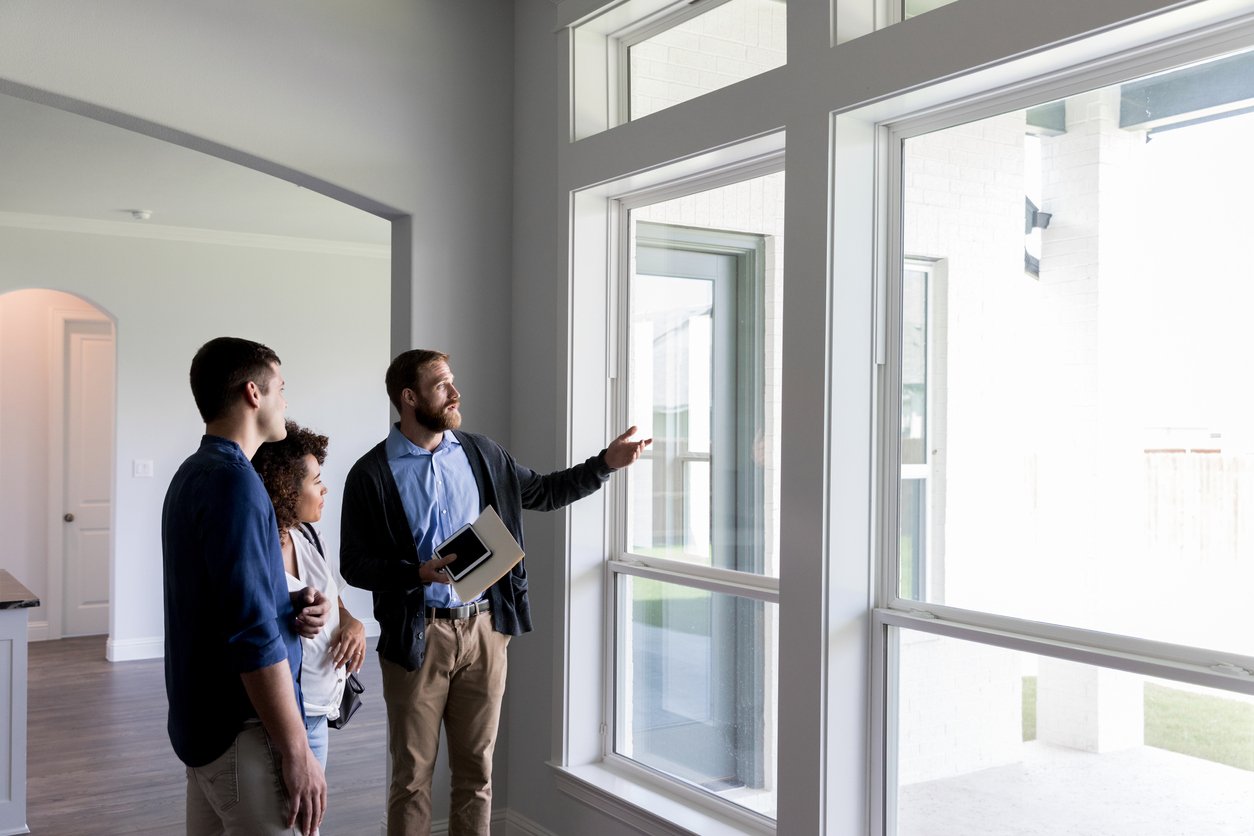One of the most common questions home buyers and home sellers ask is, “How long does it take to close on a house?” The home closing process is complex and can vary across different situations. It’s also just one part of the home buying process. However, after a purchase contract is ratified, the average time to close on a house is 30 to 60 business days. Whether you’re a first-time homebuyer or have purchased houses before, read on to learn about how long it takes to close on a house.
How Long Does It Take to Close on a House With Cash?
You can usually close on a house with cash as soon as one week after a ratified contract. The possibility of a quick home sale and closing process makes all-cash offers more appealing to home sellers. Closing on a house with cash has fewer financial hoops for a purchaser to jump through because there’s no mortgage application process. It also helps reduce the risk of problems later in the closing process.
How Long Does It Take to Close on a House When Financing?
For most home buyers, a mortgage loan is necessary to close on a dream home. The time it takes to close on a house will depend on the mortgage loan type you have been approved for, such as a conventional loan or an FHA loan. The average number of days it takes to close on a house with a mortgage is around 45 days (or longer if you still need to handle the home loan pre-approval process).
How Long Does It Take to Close on a House: The Step-by-Step Process
If you’re buying a home, congratulations on the home purchase. If you’re selling a home, congratulations on getting your home under contract. In either situation, there are only a few more steps to complete before you can relax after the stressful home buying process. The home closing process is the series of steps to get to the closing table. There, you will review and sign the legal document for buyers to take ownership of the new property and sellers to receive the funds equal to the purchase price.
We broke the home closing process down into seven steps to help you see many factors that can affect the amount of time it takes to close on a house.
1. Order a Title Search
Your closing agent or realtor will usually handle this step. A title search examines public records to determine and confirm the property’s legal ownership. A title company will also find out if there are claims or liens on the property. These title issues can slow down the time frame for closing on the property.
2. Get a Home Inspection
Although not a requirement, most buyers are more comfortable getting a home inspection to ensure there are no hidden problems with the property. Depending on the contract, there may be a contingency period so buyers can respond to problems revealed in the home inspection. This can cause closing delays. But it’s a good precaution if you’re buying the home.
3. Have a Home Appraisal
If the buyer will have a mortgage loan, then an appraiser will need to ascertain the home’s value. A home appraisal is different from an inspection. If there is a low appraisal (meaning the appraised value is less than the home sales price), then It is highly unlikely that a loan officer will approve the mortgage loan — especially on a conventional loan. There could be additional negotiations at this step before the buyer submits the down payment. All-cash offers usually do not require an appraisal.
4. Finalize the Closing Date
The mortgage lender needs to approve the home loan and prepare the loan documents. You will then finalize the closing date and closing times.
5. Finish the Final Walk-Through
This is the last time a buyer and their real estate agent will walk through the property before closing. This is the buyer’s opportunity to glance over their new home and be sure they are satisfied with the home’s condition.
6. Sign the Closing Paperwork on Closing Day
There is a lot of paperwork that will be signed at the closing table, which you want to review carefully.
7. Celebrate and Move In
After all the paperwork is completed on closing day, you can celebrate the closing on your new dream home or the successful sale of your old house. Once you have a closing under your belt, you will also have a better idea of the answer when someone asks, “How long does it take to close on a house?”
Pro Tip:
Remember, the mortgage process is a different part of the home buying process. There are lots of different steps, and your real estate agent can help you keep everything straight.
What Happens the Week Before Closing on a House?
The week leading up to closing on a house can be a stressful time. There will be a lot happening in the last week that is necessary for a smooth closing. During this period of time, you will:
Purchase Homeowners Insurance
If you have not already done so, secure homeowners insurance before the day of closing. Your lender will require homeowner’s insurance before the final approval of your loan. They may also require title insurance. Your lender will often set up an escrow account, which puts some of your mortgage payment amount into the account so the lender can manage your insurance costs.
Review the Closing Disclosure
At least three business days before closing, you will receive a closing disclosure from your lender. This lists all the final terms of your loan, shows the total amount of closing costs you will need to pay at closing, and includes the details of who pays and receives money at closing. This includes fees such as real estate commissions and outstanding payments.
Review this document carefully and contact your lender if there are any issues as soon as possible. This will ensure the answer to, “How long does it take to close on a house?” does not have to be extended.
Handle the Utilities
Arrange and pay any deposits to have the utilities at the new home you’re purchasing switched over or hooked back up in your name. This will ensure there is not a disruption in service if you’re planning to move in on the day of closing.
Double-Check on the Status of the Home
You will need to do a final walkthrough of the new home with your real estate agent. This is your chance to double-check that any agreed-upon repairs were taken care of. You can also ensure the home is in the same or better condition than the original agreed-upon state.
How Long Does It Take to Close on a House on Closing Day?
How long does it take to close on a house on the day of closing? For signing documents on the closing day, you can usually expect it to take an hour or less, but each situation is different. If you were planning for closing on a house to just take your lunch break, it’s a better idea to take a half or full day off of work. This will ensure you are not rushed during the important process. Numerous documents and forms will slide across the closing table and can overwhelm you on closing day, but it is important to read them thoroughly.
What Home Buyers Need to Bring to the Closing Table
Despite the excitement of finally getting the keys to your new home, don’t forget to bring these important items you may need at the closing table.
- Photo ID
- Certified or cashier’s check made payable to the title company for any closing costs that you are responsible for paying
- Copy of the closing disclosure you received to compare to the documents you are signing
- Copy of your homeowners insurance policy
- Personal checkbook (just in case of any unexpected small amounts that you need to pay)
- Folder or briefcase: At the closing, the home buyer will receive documents, such as a copy of the promissory note for the home loan and the purchase agreement. However, most closing companies will provide folders to house all of your documents, so don’t worry if you forget.
What Home Sellers Need to Bring to the Closing Table
You may not bring all these items to the closing table, but you need to have these items ready for the new homeowners. If you’re not bringing these items to the closing, then leave them in a designated spot inside the house that the buyers can easily find after the closing.
- Photo ID
- Cashier’s check for closing costs or agreed-upon repair credits not being deducted from the funds of the purchase price
- Personal checkbook: It is never a bad idea to grab your checkbook on your way to closing, just in case any unexpected costs arise.
- All keys to doors and other buildings or gates on the property
- Any remotes or devices that control systems of the house
- List of punch codes for garage doors, locks, and other smart devices
- Any information for operating smart locks, thermostats, doorbells, or appliances
How Long Does It Take to Close on a House: Final Tips
Use these tips to help reduce the time frame when you’re asking yourself, “How long does it take to close on a house?”:
- Be upfront about all payment obligations to your lender. Any discrepancies could change your debt-to-income ratio, which could delay your loan approval or affect your loan estimate.
- Do not apply for other loans or take on more debt after applying for a mortgage.
- Whenever your lender requests information, such as bank statements, pay stubs, or tax returns, try to respond promptly to speed up the loan approval process.
- When putting your house on the market, follow strategic selling tips, such as staging your home.
- Complete any agreed-upon repairs in a timely fashion to avoid closing delays.








